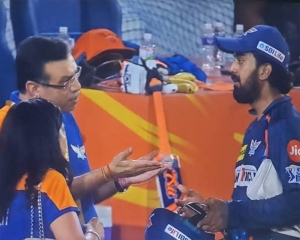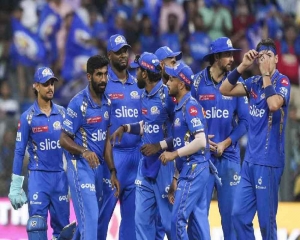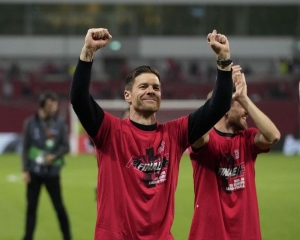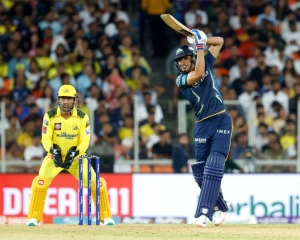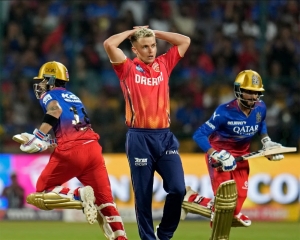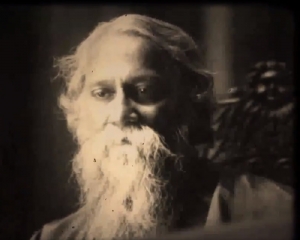While many directors take a leaf out of their personal lives to make films, it is rare to find one who willingly jumps into a burning world issue, works extensively on it and then decides to make a film on it after 15 long years. Producer-director Tabrez Noorani did just that. A well- known producer in Hollywood, who has been associated with movies like Slumdog Millionaire and the Best Exotic Marigold Hotel and more, one of the lesser known parts of his life is the work he did with NGOs like Coalition to Abolish Slavery & Trafficking (CAST) with which he has been associated since 2003, triggered by an incident when women were found inside a shipping container which had come from China. “Because I produced movies, under the guise of location scouts, I would go under cover initially to rescue trafficked women,” says the producer-director who got interested in the craft at a very early age and worked with his uncle Zafar Hai, a reputed commercial and documentary filmmaker in India on The Perfect Murder which was produced by Merchant Ivory.
So when he decided to switch sides and become a director, this incident as well as many others served as inspiration. “The experience of eight or nine raids over a period of 10 years with three NGOs, where I worked to rescue girls and rehabilitate them, forms the basis of the screenplay of Love Sonia. It is based on actual people and events who we have encountered along the way. And the truth is toned down. Ironic when it comes to films representing a slice of life but otherwise it would be horrific,” says Tabrez, who spent his formative years in Mumbai working as a second assistant director on many of Hai’s films before leaving for film school in the US in 1991.
Tabrez says Love Sonia looks at the world of global sex trafficking regardless of where it happens — in India or China. “Sometimes in the West it is a lot easier for people to look at things since they are not happening in their country. But once the same issue hits closer home, perceptions change and that is what we have done in the film.”
So with the stark subject matter, does it bother him that there might not be many takers and Love Sonia might just remain confined to the film festival or arthouse circuit? He says, “First of all, we have only been to two film festivals. Unlike the other so-called art films or off-centre films, this movie is releasing in 350 cinemas. Things are changing and in order to change things, people should believe in the product and have and an audience that believes in different things. That is what we are trying to do with this one. I hope that the viewers go to see the amazing cast and after 10 minutes they will not be thinking of anything but the relationship between these two sisters and one sister’s search for the other against a backdrop of global sex traffic. In order for them to experience hope, they need to go through a journey that they would not have gone through before,” he says.
Despite being so emotionally invested in the subject, the filmmaker feels that it was neither cathartic nor therapeutic for him. “When you are a debutante, you need to make something that you feel passionately about. And I was about these girls as I have met them. I wanted to make sure that their experience was not watered down or on the other hand wasn’t exploited which unfortunately has been done in a lot of films. The CEOs of many of the NGOs who saw the film feel that it has navigated the line very well,” he says proudly.
To make the film look authentic, it was shot across several locations with an ensemble cast. “We tried to make it as authentic as possible and that helped the actors. Because of the wardrobe or the real places, they believed themselves to be the characters and their body language changed. It certainly helps shooting at real locations. Moreover since many people did not know Mrunal, the lead actor, as she was so new, I didn’t have the problem that most Bollywood filmmakers have sometimes,” he adds.
On the other hand, having worked with Hollywood biggies helped in another way. “Because of the Los Angles connections of my producer David Woolmark, I was able to give a truly international flavour to this film. I had the technicians and the bandwidth that is needed to make a film like this,” he says.
Moreover his training as the founder of Take One Productions, which facilitated the shooting of many Hollywood films in India, helped as well. “Now things have changed and they are so much better. Initially we faced challenges like the unions showing up on the set to stop work. Unlike a Bollywood film, we did not have the luxury of time, so we could not stop shooting and were almost held to ransom. That does not happen any longer. When we were shooting Sense 8, a Netflix original series, the Mumbai Police Commissioner ensured that it was the smoothest shoot that we had. Even when we went to the censors for this one, we sat down and had an intelligent conversation. They asked why I wanted certain scenes which they thought shouldn’t be in. They heard me out and I came out with only one visual cut.”
But things did not progress as smoothly earlier. He recalls that during the shoot of Slumdog Millionaire in Agra few people took offence to the film depicting two little slum kids who were pretending to be guides and stealing shoes. “They did not care that it was a fake, imagined scenario and took offence. It was a bad situation. Things like that have hopefully grown better despite the incident with Sanjay Leela Bhansali and Padmavaat. While shooting in India, you have to make sure that the crew is safe and so are the actors. You need to be very careful about how you shoot and where you shoot,” he says.
But Tabrez is happy that the country is also changing in its acceptability of female-driven roles in the commercial space. “A lot of smaller independent films give stronger voices to women. Unfortunately those movies don’t get put up enough. They come out in five or 10 screens and are gone within a week or 10 days, which is a pity. It is changing but a lot of things here, like in Hollywood, revolve around star power. There is a lot of the onus on the film makers or the star.”
However, he feels the flatness of media platforms has powered the change in content. “Look at how we watch movies. Visit an airport, no matter where in the world, and you see people are watching everything on their phone regardless of whether it is shot on a large scale or a small web series. You have Americans watching Sacred Games and Indians watching House of Cards, so it doesn’t make a difference where it’s made. It is about a global audience.”
Moreover, this accessibility is bringing about other changes as well. “People do not have an attention span to sit down and watch a two- hour movie and prefer a 30-minute episode on Netflix. The only time that they head to a theatre is when they watch a Marvel movie,” he says.
While Tabrez had acquired the filming rights for a story on Noor Inayat Khan, the Indian woman who was a spy during the Second World War, the project has been shelved. “I am doing a few. One is based on 1920s Hollywood and the other is a more commercial film with a mix of action and adventure. The scripts are ready but I have to stay with my baby, Love Sonia, for the next few months. Nothing will start until the next few years,” he says.
But his entire journey started with his uncle who he believes was, “A classy, talented film maker because he was well-read and cultured. From him, I learnt different types of cinema even before I went to LA film school. While growing up, I was watching movies like Sholay, Amar Akbar Anthony, Star Wars and so on. He opened my eyes and I started watching German and Italian cinema, so it is all due to him that I am where I am,” he says. Thankfully, not A Perfect Murder but this is certainly an apt realisation of a “perfect dream.” And some thanks are in order for a health drink that made him a complete boy to man. That brand was Complan.














